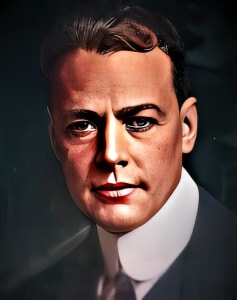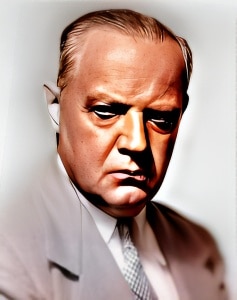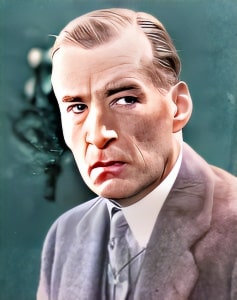 Donald Crisp (1882-1974) was a versatile actor, director, and producer known for his substantial contributions to the world of cinema.
Donald Crisp (1882-1974) was a versatile actor, director, and producer known for his substantial contributions to the world of cinema.
He left an indelible mark on both the silent and sound film eras and enjoyed a successful career that spanned several decades. With his distinctive voice and commanding presence, Crisp became a celebrated figure in the early years of American cinema.
Born on July 27, 1882, in Bow, London, England, Donald Crisp embarked on a journey in the entertainment industry that would make him one of the most recognized faces in Hollywood.
Crisp’s early career took shape on the stage, where he gained valuable acting experience and honed his craft. He eventually transitioned to silent films in the early 1900s, making his screen debut at a time when the film industry was still in its formative years.
One of the highlights of Donald Crisp’s career was his collaboration with pioneering director D.W. Griffith. Crisp appeared in several of Griffith’s films, including “ The Birth of a Nation” (1915), a groundbreaking film in terms of cinematic techniques. The film faced criticism for its racist content but is considered a significant milestone in cinematic history. Crisp portrayed General Ulysses S. Grant in the film, contributing to its historical authenticity.
In Griffith’s “ Intolerance” (1916), another epic project that explored themes of prejudice and injustice throughout different historical eras, Crisp’s performances were central to the film’s impact. His ability to adapt to a variety of roles showcased his versatility as an actor.
As the silent film era transitioned into the sound era, Donald Crisp faced the challenges of adapting to the evolving industry. He continued to act in films and theater and expanded his career to include directing and producing. His talents extended behind the camera as he ventured into directing feature films, demonstrating his expertise in various aspects of the film industry.
Crisp’s contributions to the world of cinema were recognized and celebrated. He received the Academy Award for Best Director for his work on the film “How Green Was My Valley” (1941). In addition to his directing accolades, he earned a Best Supporting Actor Academy Award for his role in “How Green Was My Valley.”
Donald Crisp’s personal life and off-screen activities remain relatively private, with limited information available. His focus on his career as an actor, director, and producer is the central element of his legacy.
He continued to work in the industry well into his later years and passed away on May 25, 1974, in Van Nuys, California. Donald Crisp’s contributions to the silent and sound film era continue to be celebrated and appreciated for their role in shaping the early years of American cinema. His versatility as an actor and his achievements behind the camera are considered essential in the history of American film, serving as a testament to the evolving art of storytelling through the medium of film.




